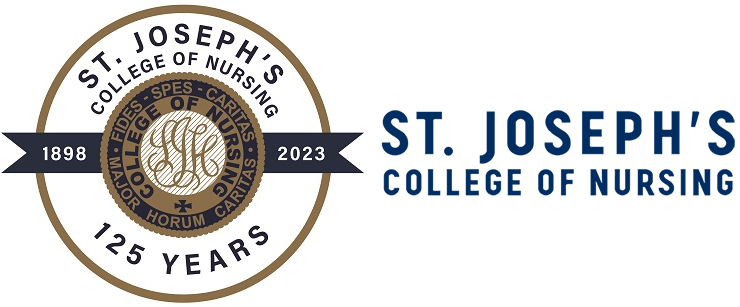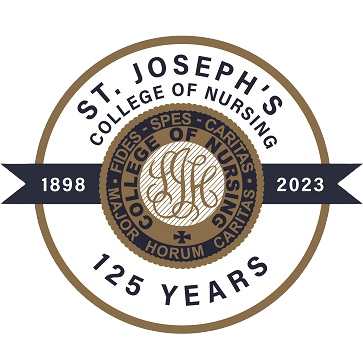Enrollment Requirements
Enrollment is defined as completion of all requirements listed below prior to the established deadline date.
Enrollment Deposit:
A non-refundable enrollment deposit must be paid by the established deadline date. If the fee is not submitted by the established deadline date, the application is cancelled and the student forfeits the guaranteed space in the program.
Transcripts:
All official transcripts pertaining to transfer credit must be received by the Registrar prior to enrollment. Applicants enrolling directly out of high school must submit an official high school transcript indicating the date of graduation.
If fraud is suspected, the Registrar will refer to the U.S. Department of Education’s list of public and private high schools to verify legitimacy of the institution. Additionally, the Office of Financial Aid may review the high school information located on the Free Application for Federal Student Aid (FAFSA).
Health:
All students must upload specific documents including health history questionnaire, physical exam by a medical professional within the past 12 months, proof of required immunizations and acknowledgement of Essential Functions and Technical Standards to CastleBranch by the established deadline. This process must be completed in its entirety to meet enrollment requirements. Failure to remain compliant in CastleBranch after initial enrollment requirements are met will result in the student being ineligible to attend clinical.
Health Insurance:
All matriculated students must have their own personal health insurance while in attendance.
Valid cards are to uploaded annually and managed through CastleBranch. If nearing expiration, renewal is REQUIRED prior to expiration date. Failure to remain compliant in CastleBranch will result in the student being ineligible to attend clinical.
Basic Life Support Cardiopulmonary Resuscitation Certification (BLS CPR):
St. Joseph’s College of Nursing mandates BLS CPR as an enrollment requirement. It is the student’s responsibility to complete an approved BLS CPR course prior to the designated deadline.
Students must choose from the following options for initial BLS CPR certification:
- American Red Cross (www.redcross.org) – Basic Life Support for Healthcare Providers (BLS CPR)
- American Heart Association (https://international.heart.org/en ) – Basic Life Support for Healthcare Providers (BLS CPR)
Students enrolled in a blended learning BLS course (online & classroom), must complete online learning content followed by classroom practice and skills demonstration in order to receive certification.
Valid cards are to be uploaded to and managed through CastleBranch. Certification is valid for two (2) years. If nearing expiration, renewal is REQUIRED prior to expiration date. Failure to remain compliant in CastleBranch will result in the student being ineligible to attend clinical.
Student Background Check:
Click to view the Student Criminal Background Check Policy.
Critical Thinking Exam:
- All incoming students are required to take a critical thinking entrance exam on the first day of class. There are no study materials for this standardized exam.
Students who fail to meet the enrollment requirements in their entirety by the published deadline set forth by the College will be ineligible to enroll.
Essential Functions/Technical Standards
Essential functions/technical standards include non-academic criteria essential to successfully complete the required nursing coursework. The following is a representative list of the essential functions/technical standards required to be achieved with or without accommodation.
Communication
Use good communication skills in interacting with peers, staff, college personnel and patients. Examples of relevant activity include, but are not limited to:
- effective verbal and non-verbal communication skills
- effective utilization of the English language
- recording all information accurately
Sensory Skills and Observation
Functional use of senses. Examples of relevant activity include, but are not limited to:
- Must be able to assess patients in their environment in order to safely deliver nursing care. Examples of relevant activity include, but are not limited to:
- detect changes in skin color
- collect data from recording equipment and measuring devices
- detect fire in a client area and initiate emergency action
- draw the correct quantity of medication into a syringe
- Must be able to assess patients and their environment and to implement nursing care plans that are developed from such assessments. Examples of relevant activity include, but are not limited to:
- detect sounds related to bodily functions using a stethoscope
- detect audible alarms, e.g., monitors, fire alarms, call bell
- communicate clearly in a telephone conversation
- communicate effectively with clients and with other members of the health care team
- detect odors of bodily fluids or spoiled foods
- detect smoke from burning materials
- detect changes in skin temperature
- detect unsafe temperature levels in heat-producing devices used internally/externally with clients
- detect anatomical abnormalities such as subcutaneous crepitus, edema, and infiltrated IV fluids
Manual Dexterity and Motor Skills
Strength and mobility sufficient to perform client care activities and emergency procedures. Examples of relevant activities include, but are not limited to:
- perform cardiac pulmonary resuscitation (CPR)
- accurately place and maintain position of stethoscope for detecting sound functions
- manipulate small equipment and containers such as syringes, vials, and medication packages to administer medications
- safely transfer clients in and out of bed
- lift or move clients or objects, turn and position clients as needed to prevent complications due to bed rest
- hang IV bags at the appropriate level
- accurately read the volumes in bodily fluid collection devices
Cognitive Ability
Ability to collect, analyze, and integrate information and knowledge to make clinical judgments and management decisions to promote client outcomes. Examples of relevant activities include, but are not limited to:
- process information accurately, thoroughly and quickly to prioritize tasks, perform math computations for medication dosage calculations
- demonstrate skills of recall using both long- and short-term memory, inferential reasoning, predicting possible outcomes, and applications of knowledge, and evaluation of predicted outcomes at appropriate times for point of program
- learn to use Nursing Process in a systematic way
- critical thinking in the process of delivering care and comfort to clients
Emotional Stability, Behavioral/Social Attributes
Student is expected to have the emotional stability required to provide safe nursing care. Examples of relevant activities include, but are not limited to:
- exercise sound judgment, complete assessment and intervention activities, and develop sensitive interpersonal relationships with patients/clients/families and others responsible for health care
- demonstrate flexibility to function effectively under stress and adapt to multiple situations
- handle strong emotions
- demonstrate compassion
- establish therapeutic relationships in a caring manner
- focus and maintain attention on tasks
Professional Behavior
Professional behaviors involve a specialized skill set essential to the performance of a unique and professional role. Examples of relevant activities include, but are not limited to:
- convey caring, respect, sensitivity, tact, compassion, empathy, tolerance and a healthy attitude towards others
- demonstrate professional communication, appearance and behavior that shows respect for clients and self
- demonstrate a mentally healthy attitude that is age appropriate in relationship to the client
- handle multiple tasks concurrently
- perform safe, effective nursing care for clients in a caring context
- maintain the confidentiality of medical information
- understand and follow the policies and procedures of the College and clinical agencies
- understand the consequences of violating the student code of conduct
- accept responsibility, accountability and ownership of one’s actions
- function effectively in situations of uncertainty and stress inherent in providing nursing care
- adapt to changing environments and situations
- remain free of chemical dependency
- report promptly to all clinical experiences
2/12/19



